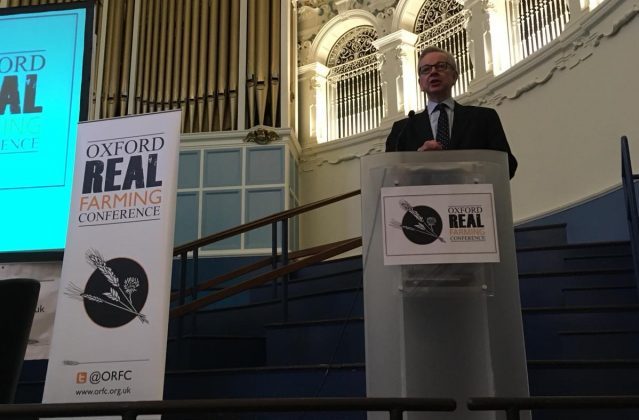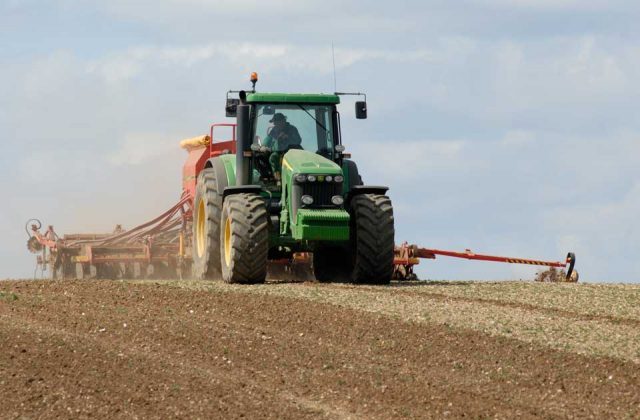Environment Secretary addresses Oxford Farming Conference and Oxford Real Farming Conference

Today (3rd January), the Environment Secretary attended the Oxford Farming Conference, one of the most significant dates in the farming calendar.
He spoke about, among other things:
- The need for farmers to have the certainty to plan, invest and produce for the long-term. Ahead of the Spending Review, he outlined his determination to make the case for long-term investment in British farming.
- His support for the Prime Minister’s Brexit deal that will see us leave the EU’s Common Agricultural Policy, while avoiding the disruption of a no deal. We will also be able to forge ahead with reforms that will put Britain in a world-leading position both in food production and also in the stewardship of our environment.
- The critical role of farmers as food producers, providing healthy and affordable food for everyone. Food and drink is our biggest manufacturing sector, contributing £113 billion to the economy every year.
- The government’s investment in research, development and innovation that will accelerate technological advances such as artificial intelligence, more sophisticated analysis of big data and robotics.
He also attended the Oxford Real Farming Conference, taking part in a lively and wide-ranging discussion facilitated by Kerry McCarthy MP. Among the topics covered were agro-ecology, future payments under the new Environmental Land Management system and the importance of a strong regulatory baseline in any future system.
You can read the Environment Secretary’s full speech here.
The Times on 'megafarms' and environmental standards

This morning’s edition of the Times included an article on claims that some farms will be “free to pollute and plunder the environment” unless the Government enforces new minimum environmental standards.
There are already strong environmental standards in place to prevent farmers from doing damage to natural environment, all of which will remain in place after March 29.
We also want a regulatory enforcement approach that leads to compliance with standards by all farmers and land managers, regardless as to whether they are in receipt of financial assistance. The recent Dame Glenys Stacey review set out significant opportunities to improve our regulatory approach, with bold recommendations based on independent and effective regulation. We have welcomed those findings and will be responding shortly.
Our future agricultural policy will do more than any previous regime to protect and enhance the environment, signalling a move away from land-based subsidies to rewarding farmers and land managers for the delivery of environmental outcomes that go beyond the statutory minimum standards.
Finally, we will be establishing a new independent, statutory body as part of the Environment Bill, which the Prime Minister announced in the summer. This will play an important role in holding the Government to account on environmental standards once we leave the EU.
In response to the claims in an article, a Defra spokesperson said:
We are committed to maintaining protections for our environment and animals, and have always said that our new policy will maintain strong regulation alongside proportionate enforcement.
Existing domestic and EU standards that provide environmental and animal welfare protections are either already in place in UK law or being brought over from EU law through the EU Withdrawal Act. All farms - whether large or small - will continue to be legally required to comply with them.